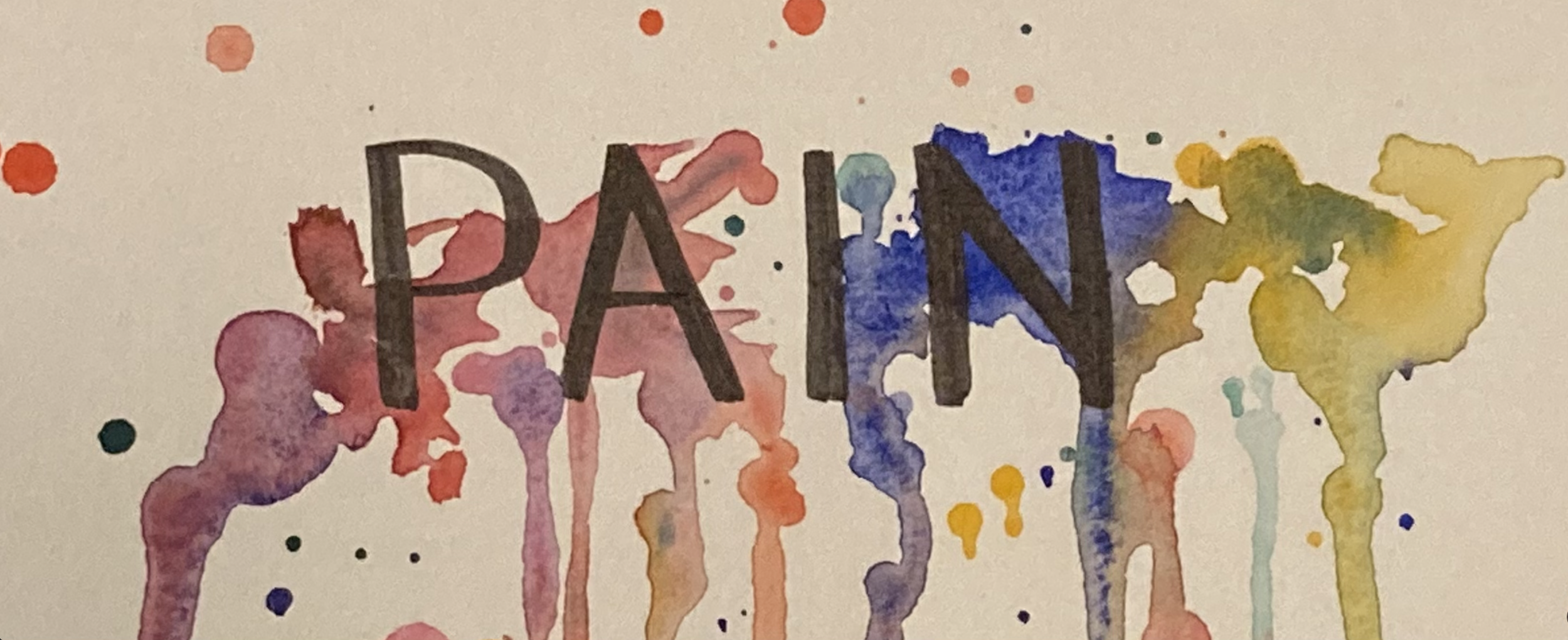A New Year's Message And The Science Of Pain
I hope you had a lovely holiday season and a sweet entry into the new year. I suppose my favorite thing about January 1 is the feeling of possibility that comes with it. For me, it feels like a fresh start. I get to consider anew, what I'd like the year to look like, and most importantly, how I want to feel.
Instead of making a list of resolutions, I pick a word or image or quality that I want to feel more of, and then I ask myself what I could do to support that. This year, my word is "ojas" - a Sanskrit term translated as “essence of vitality.” Basically, ojas is the vital energy or essence that nourishes and influences our health on every level. When I've felt depleted lately, I've found myself remembering this word and getting curious about it's role in my energy level and feelings of aliveness. Through an ayurvedic lens, one way to build ojas is to do things that light you up.
Something that definitely makes me feel more alive is creating new curriculum and working in collaboration! On that front, I've been meeting with my friend, colleague, and PT extraordinaire, Katey Blumenthal, to create a course that uses the frameworks of mindfulness, yoga and physical therapy to work with chronic pain.
I've guested on a couple of podcasts on this subject so if you want a little intro to mindfulness and pain, you can check out the links at the bottom of this email.
What I don't talk about in those podcasts is the science of pain. If you'd like a little intro, read Katey's words below...
From Katey:
Research has revealed how pain works, and additional research has shown that understanding the science of pain can reduce the pain experience.
Pain is produced in a connection between your brain and your body. There is no pain that is not constructed, at least in part, by the brain. Moreover, all pain is processed and constructed in the centers of our brain that are responsible for attentional processes (prefrontal cortex), thoughts (cerebral cortex), and emotions (the limbic system).
When our nervous system senses an input (that we later perceive as pain), that perception travels to the thalamus, which serves as a disc jockey for the brain. The thalamus determines what inputs to attend to, and which to disregard. If the thalamus determines an input is worth attending to, it relays that perception to various parts of our brain - including those listed above, the prefrontal cortex, the cerebral cortex, and the limbic system. The processing in those centers can interpret an input as pain, and can influence the attention, thoughts, and emotions we have surrounding that pain.
When pain is chronic, the signal from input into certain parts of our body can be very high. However, we can leverage this knowledge of pain science to our advantage.
Pain science research has shown that mindfulness can mitigate our attention, thoughts, and emotions surrounding pain, therefore reducing the pain experience and the suffering caused by it.
So even in the midst of pain, we can develop control over how we think about the pain, how we respond to the pain, and the stories we tell about the pain. This can have a diminishing effect on the physical sensations and emotional suffering around pain.
In our upcoming course, we'll explore techniques to work on this.
We'll be sharing more over the month of January but if you know you're ready to change your relationship to pain, registration is now open.
Depower Your Pain With The Best of Mindfulness, Yoga, and Physical Therapy
In-person only, Wednesday, February 5, 12, 19 & 26, 9:30-11am (MST)
In the 9th and 9th area
Learn More or Register
If I can answer any questions about anything in this email, don't hesitate to reach out. And if we haven't connected in a while, I'd love to hear from you. What word or quality are you inviting in this year? I'd love to know!
Sending so much love your way.
Rachel
Other ways you can work with me...
If you want some support starting or recharging your yoga and meditation practice, join the Your Yoga community! Register here to start your free 7-day trial.
If you'd like to work with me one-on-one, I have a few spots available. Reply to this email if you'd like to chat about whether this is the right time and fit for you.
And you can find all of my online workshops and courses here.



